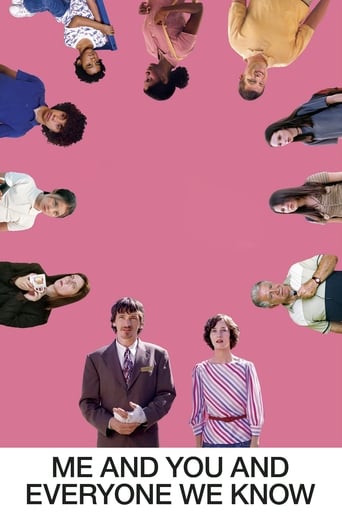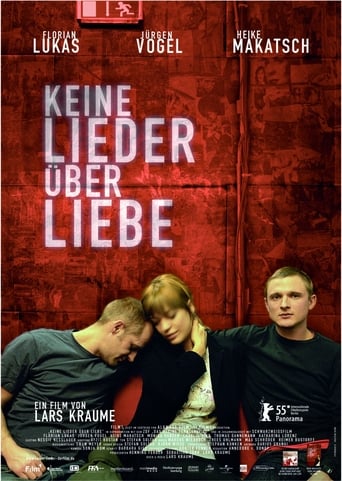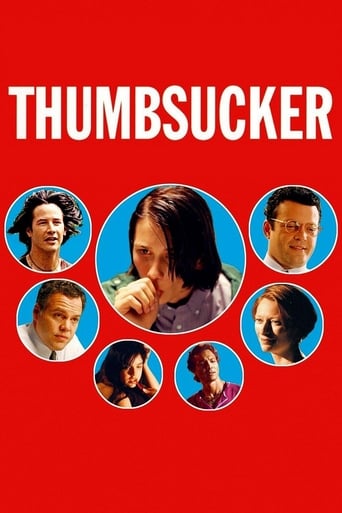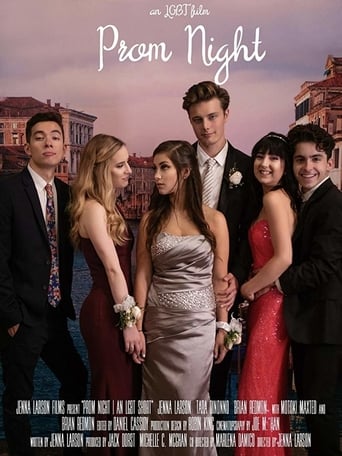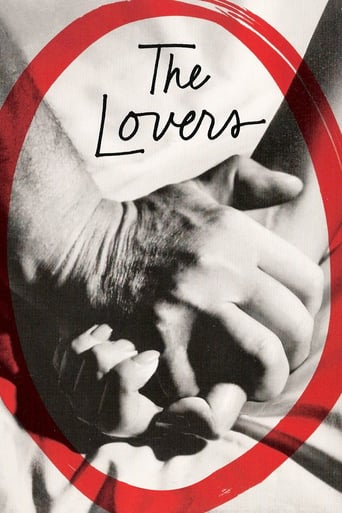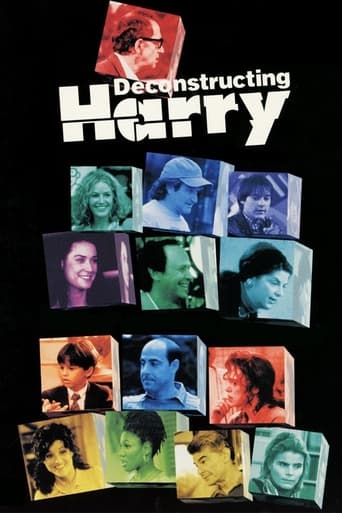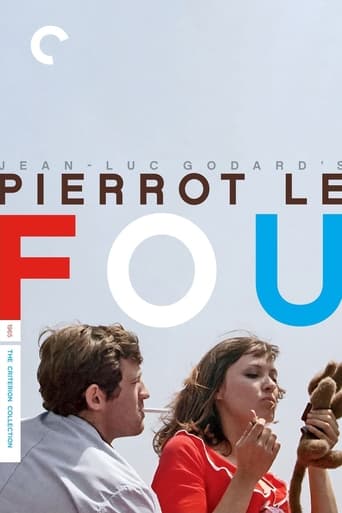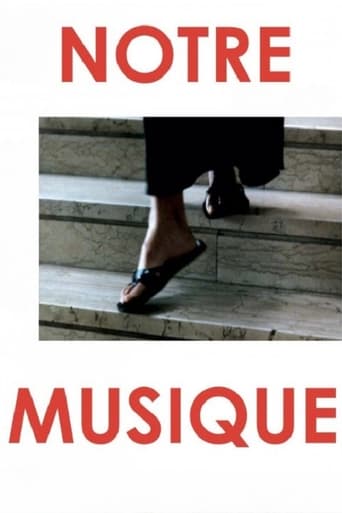
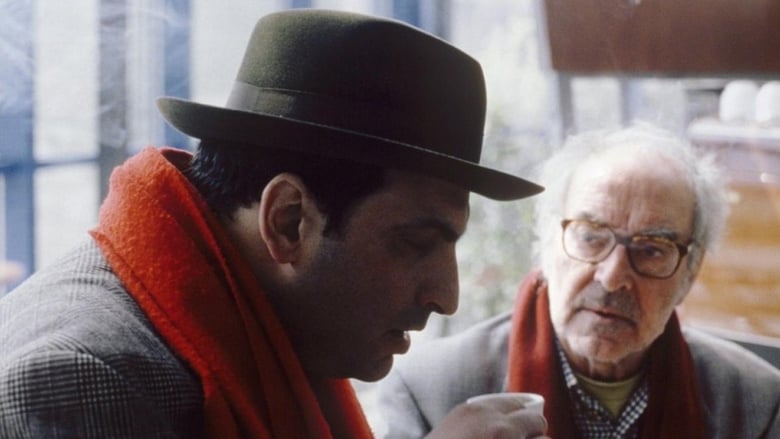
Notre musique (2004)
Divided into three “kingdoms” — Enfer (Hell), Purgatoire (Purgatory) and Paradis (Paradise) — Notre Musique is an indictment of modern times.
Watch Trailer
Cast
Similar titles
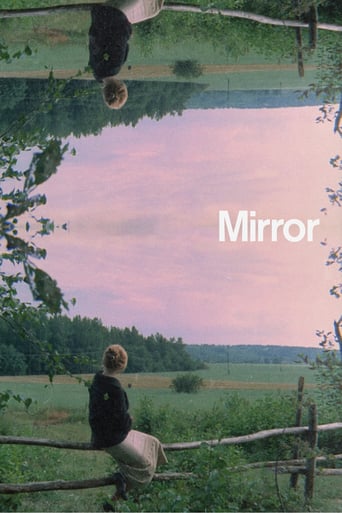
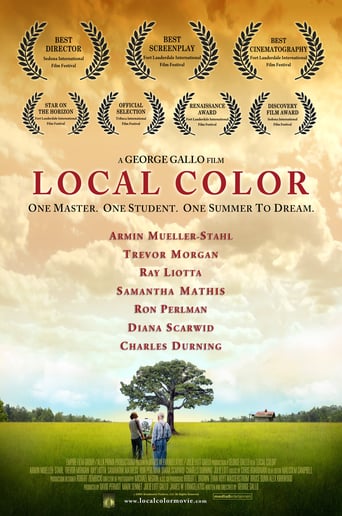
Reviews
Thanks for the memories!
If you don't like this, we can't be friends.
what a terribly boring film. I'm sorry but this is absolutely not deserving of best picture and will be forgotten quickly. Entertaining and engaging cinema? No. Nothing performances with flat faces and mistaking silence for subtlety.
It is an exhilarating, distressing, funny and profound film, with one of the more memorable film scores in years,
Was really the best film of 2004 and I am a bit shocked that I heard as little as I did about it. Like The Divine Comedy, the film is broken into three parts, Inferno, Purgatory, and Paradise except the realms of the afterlife are here used as political metaphors. The Inferno is ten minutes of images of war from all of film history and some stock footage, Purgatory is the "story" part of the film about a meeting of artists, thinkers, and journalists in bombed out Sarajevo for a conference, and Paradise is a beautiful impressionistic beach resort guarded by US Marines. The dialogue is fairly oblique and stilited, but thats just how Godard rolls. If you can keep down the little reactionary who lives inside us all anytime we sense that dreaded word "pretentiou..", than you may find yourself moved by the end, moved in a way Godard has not moved anything in quite awhile.
Some film critics, like Stuart Klawans of "The Nation" magazine, Desson Thomson of "The Washington Post," and Manohla Dargis of "The New York Times," have hailed this latest effort from Godard, the undisputed giant of the French New Wave, in glowing terms. I think it's a sloppy little film that wouldn't have seen the light of the big screen thousands of miles from home were it not for the fact that it was made by a legendary director."Notre Musique" is divided into three sections: the first (12 minutes) is subtitled "Kingdom 1 Hell" and the last (6 minutes) is called "Kingdom 3 Heaven." The long middle section (62 minutes) is "Kingdom 2 Purgatory." "Hell" is a montage depicting scenes of war battles and the carnage that is created by war - made of clips from documentary archival footage and fictional feature films. "Heaven" is a contemporary shoot in a lush park-like setting next to a lake, where it's peaceable and sunny, a lovely stream meanders through, and a few people frolic about. Both of these brief sequences could easily have been made by film school students.It's difficult to describe the main middle section. It takes place at an international conference in Sarajevo of intellectuals, literati, journalists, diplomats and arts people. Was it an actual conference or something staged for the film? You can't tell just from watching. Several well known people play themselves, including Godard. But mixed in among them are actors playing roles of people given other names.There's lots of talk. A number of big ideas are casually put on the table, some intriguing but entirely unexplored (example: "killing a man to defend an idea isn't defending an idea, it's killing a man"), some certainly questionable or debatable (examples: "humane people don't start revolutions, they start libraries or cemeteries," or "if the house is already on fire, it's foolish to try to save the furniture"), others simply false on the face of it (example: "The only serious philosophical problem is suicide").There are allusions to the Nazis; to the destruction - during the Bosnian war - and recent reconstruction of the nearby ancient Mostar Bridge, first built in 1566; to the perennial middle east problem of Palestine and Israel; to the seeming universality of man's inhumanity to man (example: Native Americans in full tribal regalia standing solemnly alongside the Mostar Bridge).There is footage wasted on various moving forms of transportation planes, buses, cars, trains, streetcars and on people getting into and out of cars, like typical filler footage in a third rate TV drama from Burbank, CA. And there are little meaningless toss off scenes, like an impassive waiter serving flutes of wine carefully to six people seated around a table, a scene that segues into another, in which a fat male guest intrusively wraps a hammy arm around a shapely impassive waitress and pushes her through a little faux dance. So what's that all about the well off even intellectuals exploiting working people? Who knows.The best bits occur in a seminar conducted by Godard himself, about the way in which cinema can portray opposite tendencies in human nature and society, what he refers to as "shot" and "reverse shot." He mentions several such polarities, e.g., certainty vs. ambiguity, victim vs. criminal. Another example: Godard asserts that the story of Jews in Israel is fiction, while the story of the Palestinians is documentary. What does that mean? One wonders.Well, it's true that a larger-than-life romantic aura has developed around the Israelis and their struggle to secure a homeland over the past 60 years, while we think of Palestinians instead in undramatic, concrete terms of poverty, joblessness, lack of infrastructure, ineffective leadership, and so on.Regarding cinema, Godard's comments made me think of scenes from the recent propagandistic documentary about Hugo Chavez and Venezuela, "The Revolution Will Not be Televised." In that film there is a sequence in which shots are fired from a bridge into a crowd below. Viewed from one angle, the scene invites the interpretation that opposition snipers are firing on a pro-Chavez crowd, but, viewed from another angle, the opposite conclusion is possible: that Chavez's people are shooting at opposition protesters. What is the truth? Both versions? Neither?Animating this theme further are two young women who seem also to represent opposites. There is Judith Lerner (played by actress Sarah Adler), an Israeli journalist who chooses to live in Palestine. She has come to Sarajevo because "I wanted to see a place where reconciliation seems possible." Judith is an optimist. On the other hand we have Olga (Nade Dieu) who is depressed and suicidal, despite her comfortable life. She holds herself back from suicide only because she fears pain and the next world. In the end she is shot by marksmen, we are told, and we rejoin her in the final Heaven sequence.I do agree with Godard that Purgatory could easily be imagined as a place where endless pseudo-intellectual blather keeps confusing and mesmerizing people, to their detriment. It's the sort of place that people who conduct themselves in this manner during life deserve to be stuck in for the hereafter. Talk is cheap and yet sometimes it has the power to move whole nations toward war or self destruction. Is this what he's driving at? Who can tell? The only basis for recommending this film is that it is the creation of one of the great filmmakers of the last 50 years, and we owe Godard this respect, to observe any new work of his, approaching it soberly and with openness. But we are not required to genuflect to the master, casting a blind eye toward mediocrity. (In French, Arabic, English, Hebrew, Serbo-Croatian & Spanish) My rating: 6/10 (B-). (Film seen on 02/07/05). If you'd like to read more of my reviews, send me a message for directions to my websites.
All I really want to say is that this is a beautiful movie, but it seems like you have to write more, so here goes. I don't know, this movie does not exactly strike me as Godard's version of "international politics," as someone said in an earlier comment. Godard in the film (along with the audience) is notified of the protagonist's suicide while absentmindedly working on his garden. A purely political movie would not likely waste such an opportunity to reinforce its politics with images. This is either a really bad or really great political movie. As others have pointed out, when a student asks Godard about digital cameras' effect on the future of cinema, he just stares at us. What's going on here? Are these cases of Godard being disingenuous, trying to use his presence in front of the camera to lull us into a a belief that he has no agenda, that he is not really manipulating everything that is happening behind the camera, or is he just disinterested, above it all? No, it's a mistake to equate Godard's lack of answers with a lack of interest or passion, and Godard is not very inconspicuous behind the camera. There is an intensity to the (non)scenes. I'm admittedly a trusting person, and I certainly don't claim to understand everything said, but I was moved almost throughout the film. Can I be moved by pure form? Well, can't we be moved by music?
A huge portion of the world's population consider Americans lazy, uninformed (because they are lazy), short-sighted (because they are uninformed), narcissistic (because they are short-sighted)."Can 30 million Frenchmen be wrong?" "Probably," we would say (that the French are worthy of scorn being an article of faith among a huge portion of our population)."Well, what about 3 billion non-Frenchmen?"Anyone who makes a filmlike this....uncompromisingly serious (this is a huge slap in the face to the notion that movies are about entertainment) political (read "leftist"), fiercely anti-American will be dismissed as difficult, obtuse, elitist. This is an anti-War movie and not one of those treacly "King of Hearts" anti-war movie that lets the audience off the hook by allowing them to congratulate themselves for their sympathy for the director's view. That is much too easy for someone like Godard who likes to think that mankind's endless history of "cutting off each other's heads" is unspeakably horrible, somehow something to be taken seriously.Maybe it's OK for someone to ask the audience to do a little work when engaging a work of art.This is a sublime experience. The look of the film is endlessly breathtaking....how does he get that look???? (i've never seen anyone else who could do this. And the musique, the cutting in and out of these short searing bursts of symphonic music....This pass weekend i saw 2 movies on DVD - Notre Musique and Predator. Yes, i relished the chance to see an Arnold classic and yes, i felt reluctant to have to put up with Godard's cranky obtuseness. After watching Schwartzeneger (??) I felt like i'd just wasted 2 hours of my life that i would never get back. After watching JLG, I felt like my view of the world had been permanently changed.The message of this film is that it might soon be too late. For anyone not interested in buying into such things, there is always Predator 2.



